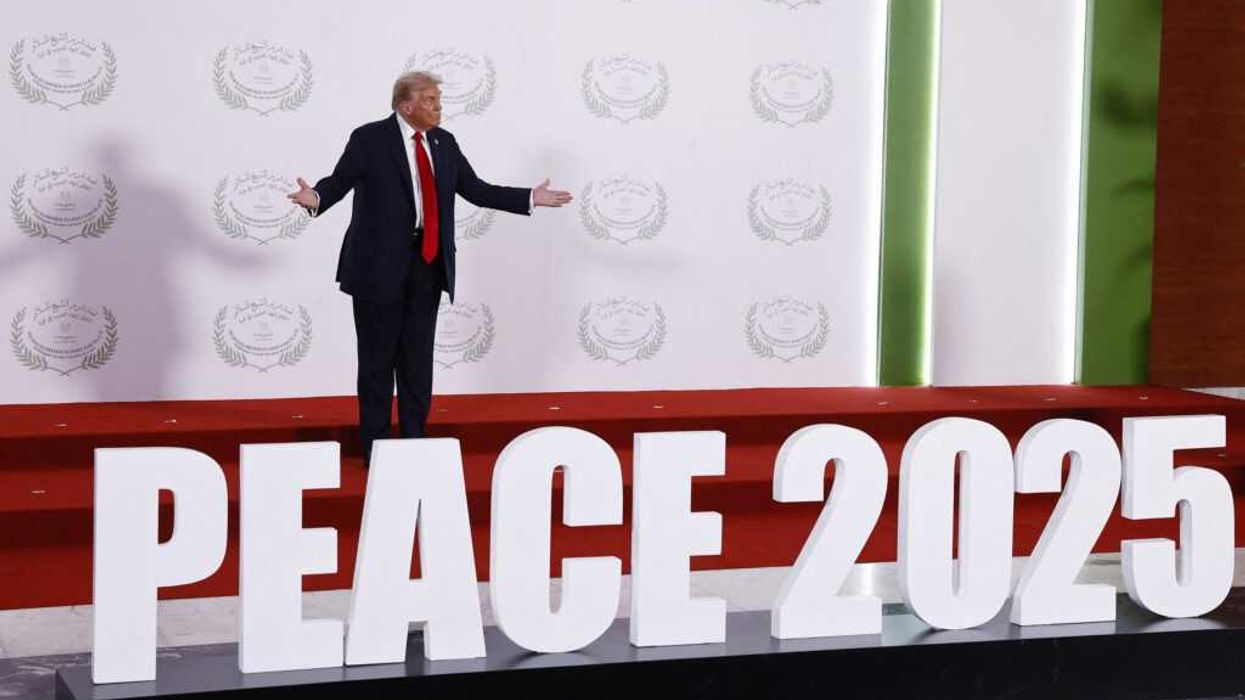President Trump took a rhetorical victory lap in front of the Israeli parliament Monday. Ignoring his patented departures from the teleprompter, which violated all sorts of valuable norms, it was a speech Trump deserved to give. The ending of the war — even if it’s just a ceasefire — and the release of Israel’s last living hostages is, by itself, a monumental diplomatic accomplishment, and Trump deserves to take a bow.
Much of Trump’s prepared text was forward-looking, calling for a new “golden age” for the Middle East to mirror the one allegedly unfolding here in America. I’m generally skeptical about “golden ages,” here or abroad, and especially leery about any talk about “everlasting peace” in a region that has known “peace” for only a handful of years since the fall of the Ottoman Empire.
So, by all means, let’s be forward-looking about building peace.
But that project requires some honesty about how we got here.
Where to begin that story chronologically is the subject of Ph.D. dissertations. But conceptually it begins with a very basic observation. From its founding, Israel and its enemies have had irreconcilable positions. Israel insists that it has a right to exist. Its enemies take the opposite position.
For clarity’s sake at least, I think it is fair to distinguish between critics or opponents of Israel and its enemies. Many critics merely want a two-state solution or more autonomy and security for Palestinians. Israel’s enemies, meanwhile, want the “Zionist entity” to be erased. “From the river to the sea,” as the saying goes, they want the Israeli “colonizers” to die or be expelled from the region. That is the stated position of Iran and its various proxies, including Hamas, Hezbollah and the Houthis. It is also by extension the position of their supporters, whether they fully realize it or not.
In such a zero-sum conflict, these positions are axiomatically non-negotiable. One side has to lose for the other to win. But here’s where things get messy conceptually: Many of Israel’s enemies are treated as mere opponents and critics, and vice versa. The distinction gets blurred by friends and foes alike.
The linguistic legerdemain of “anti-Zionism” is treated as a legitimate, respectable perspective, as if anti-Zionism somehow means something other than a desire to end Israel’s existence as a sovereign Jewish nation-state. But that’s literally what anti-Zionism means. Zionism is simply the idea that Jews should have their own country in their historic homeland.
Under the umbrella of the United Nations, there is an alphabet soup of organizations, programs and committees that are dedicated to a one-sided effort to combat the Zionist project and rectify the problem of Israel’s existence. The U.N. Relief Works Agency (UNRWA) bequeaths to Palestinians a unique “hereditary” refugee status, not accorded to any of the hundreds of millions of refugee populations since the end of WWII.
UNRWA school teachers — some of whom are, or were, members of Hamas — indoctrinate children into hatred of, and “resistance” to, Israelis. The Human Rights Council has a long history of having an obsessive, institutionalized, structurally antisemitic double standard for Israel alone.
Western media outlets rely on these agencies to frame the discussion of Israel, keeping the idea alive that the only real solution is to do something about Zionism, as if Israel’s survival remains provisional, even though modern Israel is older than dozens of other nations.
Throughout the Gaza war, claims from the Hamas-controlled Gaza health ministry were greeted with reflexive credulity, as were charges of “genocide” — against Israel. Claims that Gaza was enduring mass starvation were not subjected to the journalistic skepticism reserved for Israel or the Trump White House, but rather treated with enthusiastic credulity. Watching the celebrations in Gaza this week, did you see a lot of emaciated Palestinians? Will the press search for them now?
Over the last two years, campus protesters and social media influencers lionized Hamas terrorists as freedom fighters. The protesters were often treated in the press and by school administrators as noble and heroic champions of free speech or human rights, despite the fact they were providing cover for an Islamist organization that murders Palestinian political dissenters and homosexuals, persecutes Christians, and repeatedly affirms its commitment to the genocidal destruction of Israel. Would pro-KKK groups get the same treatment?
I think many of the accusations that Israel is committed to genocide can best be understood as a mix of projection of — and distraction from — its enemies’ open support for genocide.
If a lasting, never mind everlasting, peace is possible, it will only be when Israel’s existence is accepted as an everlasting non-negotiable fact. Once that happens, disputes about borders, Palestinian rights, and autonomy can be negotiated on a non-zero-sum basis.
Jonah Goldberg is editor-in-chief of The Dispatch and the host of The Remnant podcast. His Twitter handle is @JonahDispatch.




















Trump & Hegseth gave Mark Kelly a huge 2028 gift